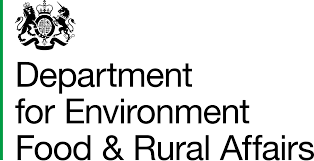PRESS RELEASE : Domestic seed production boosted with new funding award [May 2023]
The press release issued by the Department for Environment, Food and Rural Affairs on 22 May 2023.
Domestic tree seed production is to be ramped up and biosecurity enhanced with new Government funding and measures announced today (Monday 22 May).
The next round of the Domestic Seed Sourcing Grant is set to be allocated, with £747,000 awarded to boost domestic tree seed production, create green jobs, help meet the increased demand for trees and achieve our ambitious net zero targets.
The grant is designed to enhance the quantity, quality and diversity of tree seed sources in England. Most tree seed planted in the UK is of British origin, but evidence suggests that British seed sources may struggle to meet future demand across all species and there are known to be global shortages of tree seed. The grant will boost domestic tree seed production and support green jobs, helping meet the increased demand for trees.
Alongside, in line with the GB Plant Biosecurity Strategy, the Biosecure Procurement Requirement Pilot has been extended to further Government tree-planting funds to address risks to our biosecurity. Applicants to these funds, such as local authorities, must commit to sourcing their trees from suppliers who are either accredited under the Plant Healthy Certification Scheme or who have passed a Ready to Plant assessment, as provided by Fera Science Ltd for their order, to ensure they are disease and pest free to minimise future threats of invasive species and tree loss.
Trudy Harrison, Forestry Minister, said:
This funding will improve the diversity of England’s seed supply, increasing the range of species. This will be crucial for creating diverse and resilient woodlands, which are better able to adapt to future climate conditions as well as emerging pests and diseases.
Increasing seed supply will also be essential to meeting our target to treble tree planting rates by the end of this Parliament.
Richard Stanford, Forestry Commission Chief Executive, said:
We need to have healthy and thriving trees to help tackle some of society’s biggest challenges of climate change and nature decline. Protecting our treescape from biosecurity risks is vital to ensuring resilient trees and woodlands.
Increasing funding for seed sourcing will help manage the risk of pests and diseases, minimising net loss to the existing treescape and protecting our investment in diversifying and expanding tree cover in England.
Nicola Spence, Chief Plant Health Officer, said:
A healthy, high quality, and diverse treescape is integral to meet our target of achieving net zero emissions by 2050.
This vital funding will diversify our domestic seed source supply and reducing the need to import seeds from abroad. In addition, by extending our Biosecurity Procurement Requirement for applicants to the government’s tree planting funds, we will bolster our biosecurity standards and improve the resilience of our trees against harmful pests and diseases.
Eligible activities for the Seed Sourcing grant include:
- Management of existing seed stands – the groups of trees in the landscape from which seed is collected – to ensure they are productive for seed collectors.
- Desk studies and field studies to identify and bring additional seed stands onto the National Register of Basic material.
- Planning and planting of new seed stands.
- Planning and planting of new seed orchards – which are planted using seed or clonal material from known parents outside of the natural landscape in an area convenient for seed collectors.
The Forestry Commission have produced a new Forestry Nursery Directory to help connect people who buy trees with people who grow trees.
Today’s announcement coincides with the Chelsea Flower Show. This year’s RHS Show shines a spotlight on the importance of protecting biodiversity and strengthening and growing native species.
Winners of the first round of the Seed Sourcing Grant include:
- Future Trees Trust’s successful proposal will involve creating a Source-identified seed stand for blackthorn (Prunus spinosa) using seed from the Millennium Seed Bank. They will also carry out a grafting pilot on beech (Fagus sylvatica), hornbeam (Carpinus betulus) and field maple (Acer campestre) to address lack of grafting knowledge for these species, and identify beech and hornbeam plus trees across southern Britain (regions of provenance 30 and 40). Beech plus trees will then be grafted for a Qualified Clonal Seed Orchard to be planted after the funded project ends.
- Jo Clark, Head of Research at Future Trees Trust said: ‘We are delighted to have received funding from the Forestry Commission to improve seed supply of beech and hornbeam. The grant has enabled us to employ a new research technician to locate plus trees of these species. We aim to create the first qualified seed orchard for beech with this funding. We are also using blackthorn seed from the RBG Kew’s Millennium Seed Bank to establish a seed stand for blackthorn.’
- Woodland Trust have been awarded funding to identify, ground truth, and register new Seed Stands across the Woodland Trust England estate. In particular, their project will focus on desk and field studies to identify stands of guelder rose (Viburnum opulus), hazel (Corylus avellana) (specifically non-405), holly (Ilex aquifolium), hornbeam (Carpinus betulus), small leaved lime (Tilia cordata), whitebeam (Sorbus aria), service tree (Sorbus torminalis) and yew (Taxus baccata).
- Duchy of Cornwall will bring an existing Selected sessile oak (Quercus petraea) Seed Stand (region of provenance 40) into management, through thinning, mulching, and installing deer fencing.


